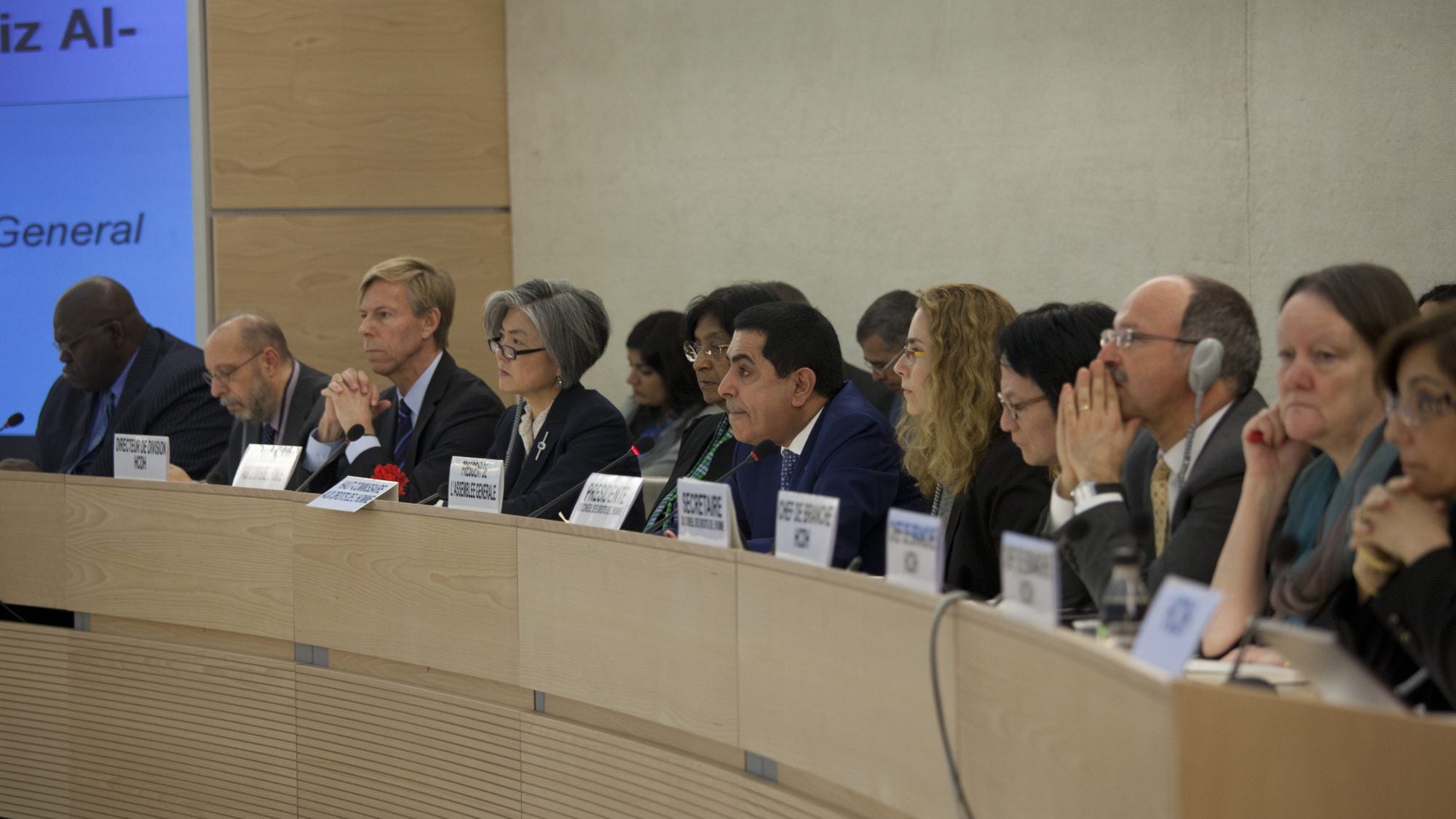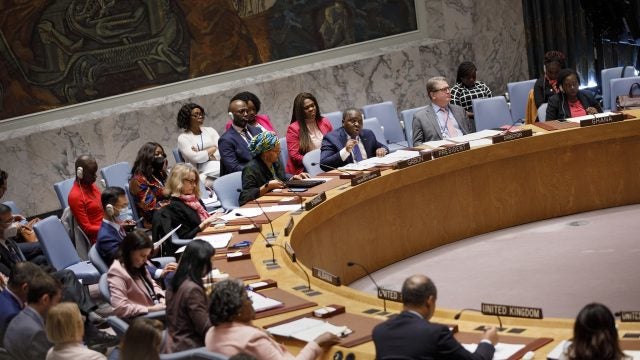
Title: Iran Looms Large in Russia’s and China’s Positions on Syria
As the crisis in Syria deepens, world powers have become more divided over how to resolve this crisis. The death toll exceeds 12,000, according to the United Nations. In an unprecedented move, the Arab League called for the UN Security Council to end the violence in Syria. However, the UN Security Council resolution embracing the Arab League’s proposal on Syria was vetoed by Russia and China. Considering the Syrian regime’s atrocities, the West along with the Arab League is pondering the reasons behind Beijing and Moscow’s reluctance vis-à-vis a change in Syria’s political structure.
It is widely argued that Russian and Chinese economic and strategic interests embedded in the survival of the Assad’s regime have outweighed their humanitarian concerns. Russia’s strategic interests in the Mediterranean Sea are intertwined with the current political establishment in Syria because the Syrian port of Tartous—its second largest—houses Russia’s only naval base in the region. In addition, Syria has been purchasing arms from Russia as an arms client for decades. China has invested considerably in Syria, which it regards as a trading hub.
The factors behind Chinese and Russian adamant support for the Syrian regime, however, go beyond these common perceptions. Although Syria has bought arms from Russia for the last few decades, it has not been a perfect client as it has struggled to make payments. There are reports indicating that Syria owes Russia billions of dollars in arms deals. Syria is also not as key of a trading partner to the Chinese compared to other Arab states in the Persian Gulf. Additionally, Syria is not rich in natural resources such as oil and gas in a region that is considered the world’s energy hub.
Taking all this into account, sticking to the above causes would oversimplify the Chinese and Russian reaction to the Syrian crisis. In fact, Syria’s relations with China and Russia are broader and far more complicated because of the role Iran plays; however, the Iranian dimension of their relationship has gone largely unnoticed by the media. China and Russia are very concerned by the linkage between the Syrian crisis and the future of Iran in the region. Although Syria is not rich in natural resources, her strategic location is of great significance; Syria is considered a lynchpin of many relationships in the Middle East e.g. Iran-Arab relations, intra-Arab relations, Turkey-Saudi Arabia relations and most importantly, Iranian relations with Hezbollah and Hamas. Any change in the political structure of the Syrian regime would have implications for all the above relationships, especially those in connection with Iran’s role in the region.
When it comes to Iran, although the Syrian government and the Iranian regime are governed by different political systems—one secular and the other theocratic—losing Syria will be detrimental for Iran on several levels. Since 1979, Syria has been a key proxy for Iran by serving as a platform from which Iran has built formidable influence over the Arab-Israeli conflict. Iran’s alliance with Syria gave Iran the opportunity to establish Hezbollah, the powerful Shi’a movement in Lebanon, as well as to support the Sunni Palestinian movement, Hamas. The establishment of these proxy groups throughout the Levant has allowed Iran to strengthen and preserve its regional influence as well as to maintain a strong posture domestically. Without the Assad regime in power, Iran loses not just the flexibility and capability that having a friendly Syrian government brings to these proxy groups but also regional geopolitical leverage.
Collapse of the current political establishment in Syria will adversely affect Iran’s relationship with those same proxies in the Levant. Should Syria go through regime change, it is unlikely that the new regime would be supportive of the Iranian government to the same extent as the current regime. Undoubtedly, a democratic Syria with a Sunni majority (who constitute approximately 75% of the Syrian population) would be more sympathetic to the rest of the Arab world rather than Iran. More significantly, all opposition groups have already warned the Islamic Republic of its cordial relations with the Assad regime and asserted that the new Syria would view the Iranian government differently. This would tremendously shift the regional balance of power against Iran and further isolate the Islamic Republic in the region.
Such developments together with increasing international isolation and domestic pressure would alter Iran’s regional role and even place the Iranian regime on the brink of collapse. The Chinese and Russians, well aware of these disastrous repercussions from Assad’s removal, are determined to prevent the current Syrian government’s downfall given their key interests in the survival of the Iranian regime. Indeed, China and Russia’s prominent geopolitical and strategic interests in Iran are indisputable. One of the reasons that China maintains robust political and economic relations with the Islamic Republic of Iran is its relentless hunger for abundant sources of energy. China is the largest energy consumer in the world and currently depends on Iran for 15% of its industrial gas and oil needs. Together, Russia and Iran represent the first and second in the world in natural gas reserves and second and fourth in oil production. This abundance in natural resources has encouraged the two to pursue an economic partnership involving the refinement and export of oil and gas. Russia, China and Iran also share some similar concerns about global governance and, in particular, the position of the United States on the world stage. Thus, it would not be inaccurate to argue that Chinese and Russian long-term objectives in the region have outweighed other considerations. In short, their support for the Assad’s regime is rooted directly in maintaining the current regime in Iran.
. . .
Majid Rafizadeh, an Iranian-Syrian, is scholar, policy analyst and human rights activist. As a scholar, he came to the United States on a Fulbright teaching scholarship where he taught at University of California, Santa Barbara. He is also contributing editor for Harvard International Review and ambassador to the National Iranian American Council. Formerly, he conducted research at Woodrow Wilson International Center for Scholars and participated at the National Council on US-Arab relations.
Image Credit: United States Mission Geneva, CC BY 2.0, via Wikimedia Commons.
This is an archived article. While every effort is made to conserve hyperlinks and information, GJIA’s archived content sources online content between 2011 – 2019 which may no longer be accessible or correct.
Recommended Articles

This article explores the uncertain future of Arctic governance amid shifting global geopolitics. It argues that whether Washington and Moscow opt for confrontation or cooperation, multilateralism in the Arctic…

Twenty-five years ago, the United Nations Security Council adopted Resolution 1325, establishing a framework that underpins the Women, Peace, and Security (WPS) Agenda. The Resolution recognized both the…

When we analyze conflicts in the Middle East, we are not analyzing conflicts with isolated impacts but risks for global energy security. Recent conflicts in the Middle East have highlighted…